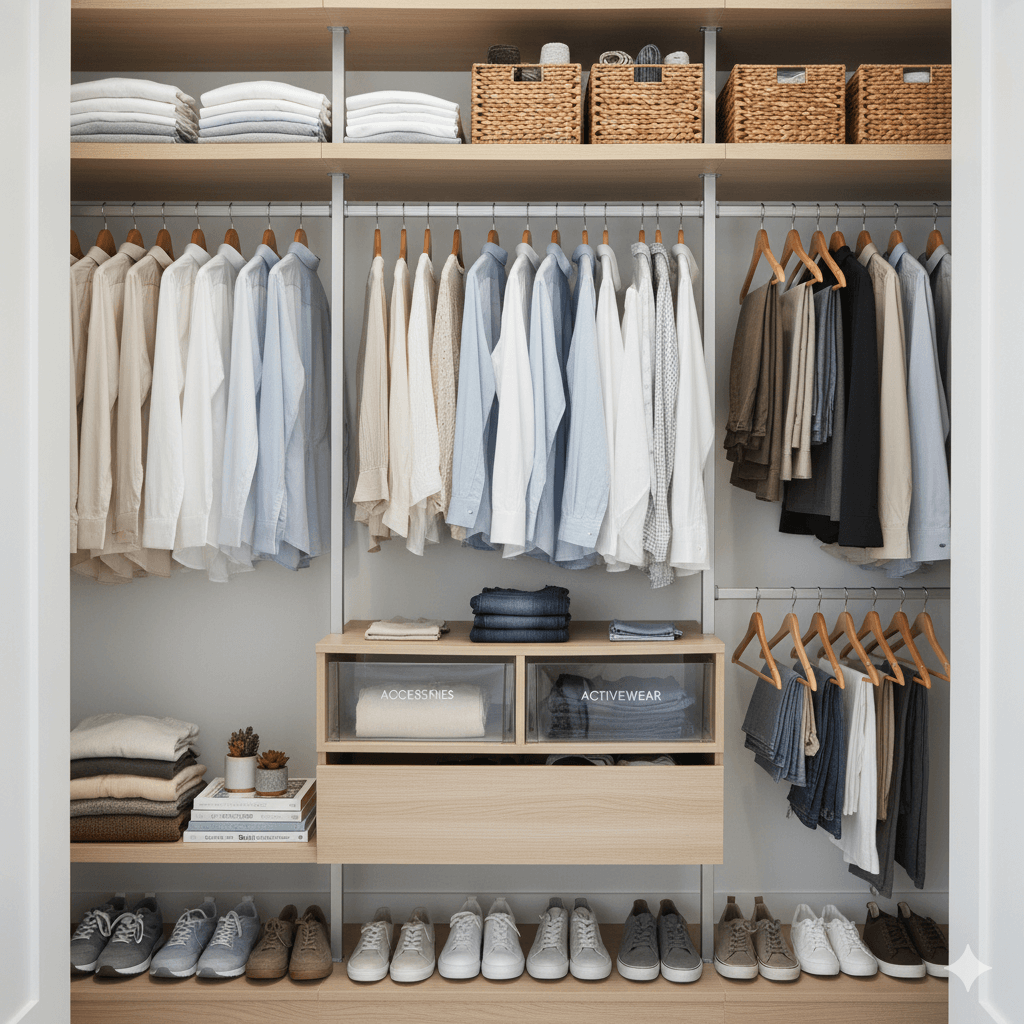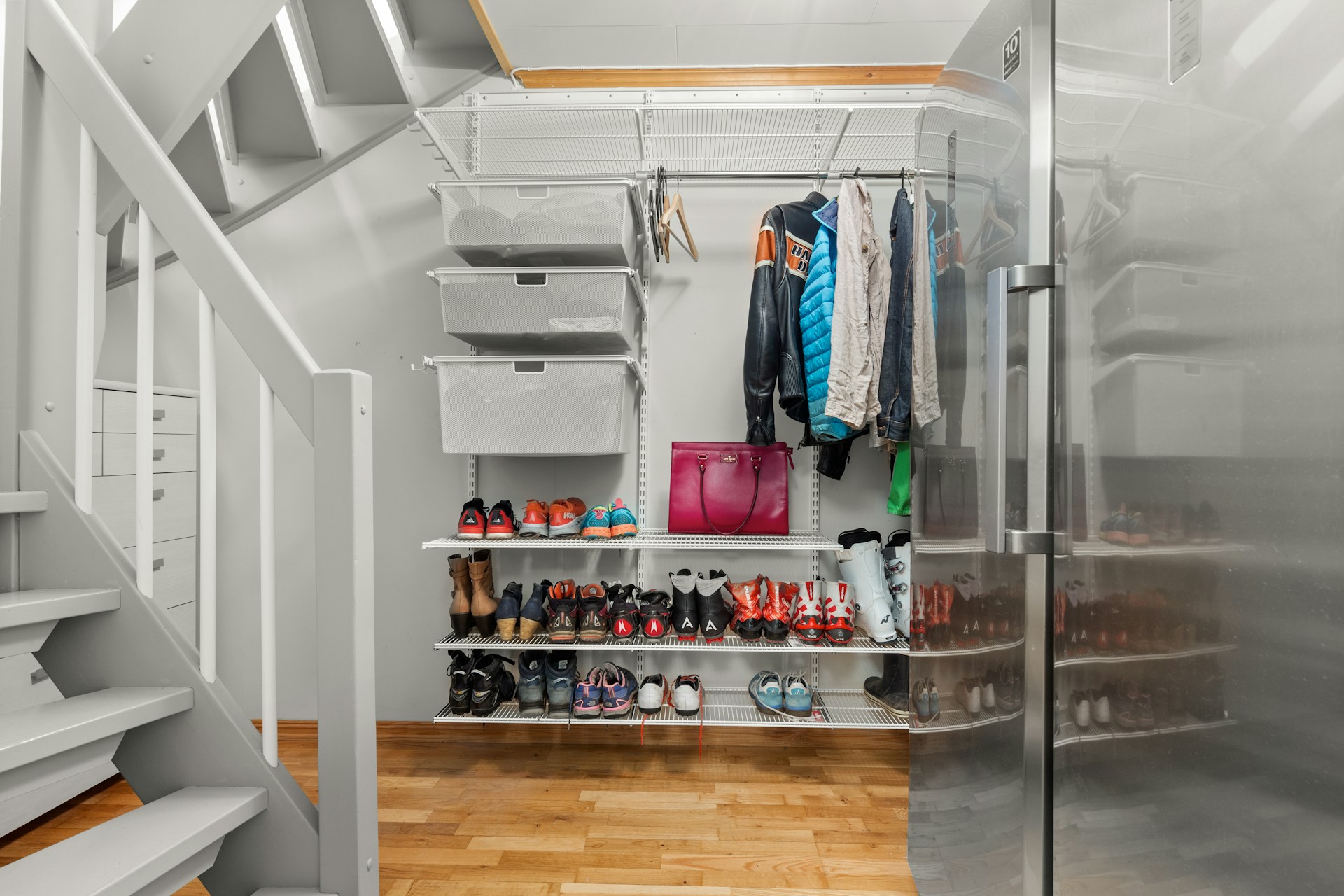Maximizing Storage in Small Boston Apartments: Clever Solutions That Don't Break the Bank
If you're living in one of Boston's charming smaller apartments, studios, one-beds, or compact two-beds, you know how important every square foot becomes. Thoughtful storage solutions can make the difference between feeling cramped and living comfortably. Some renters even explore built-in upgrades, think swapping out standard cabinetry for custom cabinets, to get better fit and function without enlarging walls or adding square footage. Below are smart, budget-friendly ideas to help you organize your space, reduce clutter, and make your home feel larger.
1. Declutter First: The Foundational Step
Before adding any storage, take stock of what you truly need. Decluttering isn't just about getting rid of items, it's about being selective and realistic.
- Go through clothes, books, kitchen gadgets, and décor. Ask: Have I used this in the past 12 months? If not, it might be time to donate, sell, or store off-site.
- Keep sentimental or seasonal items, but don't let them dominate your living space.
- Use clear bins with labels so items are hidden but still findable.
Starting small: clear out one closet, one shelf, or one drawer per weekend. It's manageable, and you can see progress quickly.

2. Use Vertical Space & Wall Real Estate
In Boston apartments, floorspace is precious, so shift focus to your walls and ceilings.
- Install floating shelves above your desk, sofa, or bed. They hold books, art, or even plants without taking up floor space.
- Use tall bookcases or shelving units that reach upward; the upper shelves can store items you use less often.
- Hang racks or pegboards in the kitchen for pots, pans, and utensils. Using wall hooks for frequently used items (like coats or bags) frees up closet room.
Note the Compact Living Guidelines by Boston's planning offices encourage small units to feature efficient storage solutions: integrated closets, cabinets above kitchen counters, and creative shelving.
3. Choose Furniture That Pulls Double Duty
Furniture can work harder for you by providing storage in disguised or functional ways.
- Look for beds with drawers underneath, ottomans that open up, or benches with hidden compartments.
- When space allows, use foldable or drop-leaf tables which can expand when needed and retract when not.
- Sofas with under-seat storage, or coffee tables with shelving or lift-tops, can hide blankets, remotes, or games.
Choosing multifunctional furniture saves both money (you buy fewer pieces) and space.
4. Optimize Kitchen & Cabinet Storage
One of the biggest storage challenges in small Boston apartments is the kitchen. Cabinets are often shallow and space is at a premium.
- Use shelf risers inside cabinets to double storage for dishes and mugs.
- Pull-out trays or sliding baskets make items in deep cabinets more accessible.
- Hang pot racks, magnetic knife strips, or pegboards to keep bulky cooking tools off the counter.
Better Homes & Gardens often recommend modular organizers and pull-outs to improve shelf accessibility and avoid wasted hidden corners. Even if you can't replace your kitchen's core, small investments here make a big difference.
5. Maximize Closets, Doors & Hidden Zones
Image from Unsplash
Closets may be tight, but with smart tweaks, they can still punch above their weight.
- Add double rods in closets so you can hang more clothing (top row + bottom row)
- Use slim hangers and uniform shapes so clothes take less space and closets look tidier.
- Over-door organizers are ideal for shoes, accessories, toiletries, especially when floor space is scarce.
Don't neglect under-bed storage, space above doorways, or even corners behind furniture. These "hidden" zones can take items like extra linens, luggage, or off-season clothing.

6. Consider Off-Site or Shared Storage Solutions
When every square foot at home is already optimized, sometimes the best solution is to move seldom-used items off-site.
- Self-storage units or shared storage spaces can hold large seasonal items, sports equipment, or keepsakes. When choosing one, check cost, access, climate control, and security.
- Some Boston apartments have communal storage rooms or basement lockers, reserve yours for overflow items like holiday décor or off-season gear.
- Only use off-site storage for items you don't need regularly, because retrieving them often negates the convenience.
7. Stay Organized with Systems and Habits
Even with storage solutions in place, clutter returns unless you build habits.
- Regularly revisit what you own: once a season, go through what you didn't use and consider whether to keep, store, or donate.
- Use labels, drawer dividers, and see-through containers so you can find things quickly.
- Keep commonly used items in easy-reach spots; store rarely used ones up high or out-of-the-way.
- Maintain a "one in, one out" rule: before you bring in something new (furniture, kitchen gadget, coat), let go of something you don't need.
Living in a small Boston apartment doesn't mean sacrificing comfort or style, it just requires smarter choices and clever organization. By decluttering regularly, utilizing vertical space, choosing multifunctional furniture, optimizing cabinet and closet usage, and sometimes using off-site storage, you can transform even compact homes into welcoming, organized spaces.
With a few tweaks and consistency, you'll feel like you've gained square footage, without moving. After all, having your apartment work for your life, not the other way around, is the real luxury in city living.
Published 9/19/25